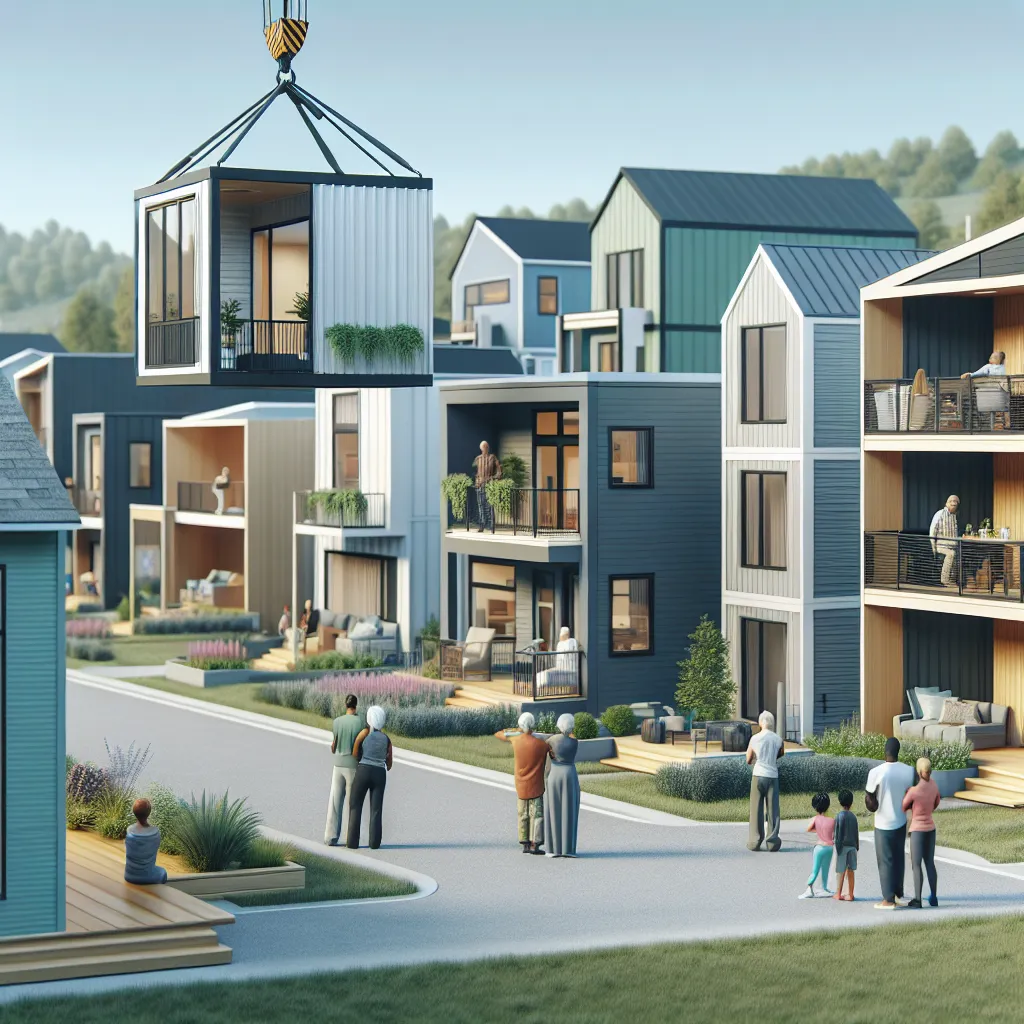Prefab Modular Homes: Revolutionizing the Future of Housing
Prefab Modular Homes: Revolutionizing the Future of Housing
In recent years, the demand for sustainable and affordable housing solutions has been on the rise. As a result, prefab modular homes have gained significant popularity due to their efficiency, cost-effectiveness, and environmental benefits. This article explores the concept of prefab modular homes, their advantages, and how they are revolutionizing the future of housing.
Understanding Prefab Modular Homes
Prefab, short for prefabricated, refers to the process of constructing buildings or homes using pre-made components that are manufactured off-site in a factory. These components, known as modules or modules, are then transported to the construction site and assembled to create the final structure. Prefab modular homes are built in a controlled environment, ensuring high-quality construction and faster completion times.
Modular homes are constructed using standardized designs and materials, allowing for efficient production and assembly. The modules, which can include entire rooms or sections of a home, are typically built with walls, floors, ceilings, insulation, plumbing, and electrical systems already in place. This construction method allows for customization, as modules can be combined and arranged to create various layouts and designs.
Advantages of Prefab Modular Homes
Prefab modular homes offer numerous advantages over traditional site-built homes, making them an attractive option for homeowners, builders, and the environment. Let’s explore some of these benefits:
1. Cost-Effective
One of the primary advantages of prefab modular homes is their cost-effectiveness. The controlled factory environment allows for efficient production, reduced material waste, and streamlined construction processes. This translates into lower labor and construction costs compared to traditional on-site construction. Additionally, the ability to mass-produce standardized modules further reduces costs, making prefab modular homes an affordable housing solution.
2. Time-Efficient
Time is of the essence in the construction industry, and prefab modular homes excel in this aspect. Since the modules are manufactured in a factory, construction can proceed concurrently at the site. This significantly reduces the overall construction time compared to traditional construction, where each stage is completed sequentially. Moreover, the controlled environment allows for uninterrupted work, eliminating delays due to weather conditions.
3. Quality Control
Due to the controlled factory environment, prefab modular homes undergo rigorous quality control inspections at every stage. Skilled workers and specialized machinery ensure that each module is constructed to the highest standards. Additionally, the use of standardized designs and materials leads to consistent quality across all modules. This quality assurance translates into durable and long-lasting homes for homeowners.
4. Energy Efficiency
Prefab modular homes are designed with energy efficiency in mind. The factory construction process allows for precise installation of insulation, reducing air leakage and heat loss. Additionally, advanced techniques, such as the use of energy-efficient windows and high-quality insulation materials, contribute to reduced energy consumption and lower utility bills for homeowners.
5. Environmental Benefits
With growing concerns about climate change and environmental sustainability, prefab modular homes offer a greener alternative to traditional construction methods. The controlled factory environment minimizes waste generation and optimizes material usage, resulting in reduced environmental impact. Additionally, the energy-efficient design of modular homes further reduces carbon emissions and promotes sustainability.
The Future of Housing: Advancements in Prefab Modular Homes
Prefab modular homes have come a long way since their inception. Advancements in technology, design, and construction techniques are paving the way for innovative and sustainable housing solutions. Here are some notable advancements in the field:
1. Smart Home Integration
With the rise of smart home technology, prefab modular homes are incorporating these features seamlessly. From integrated home automation systems to energy management controls, homeowners can now enjoy the convenience and efficiency of a connected home right from the start. This integration enhances the overall living experience and promotes sustainable living.

2. Off-Grid Capabilities
As sustainable living gains traction, prefab modular homes are being designed with off-grid capabilities. These homes can incorporate renewable energy sources, such as solar panels and wind turbines, to generate electricity. Additionally, advanced water management systems and waste disposal solutions contribute to self-sufficiency and minimal ecological impact.
3. Customization Options
While modular homes are built using standardized modules, customization options are expanding. Homeowners can choose from a wide range of designs, finishes, and layouts to suit their preferences and lifestyle. With advancements in modular construction techniques, customization no longer means compromising on quality or efficiency.
4. Multi-Story Construction
Initially, prefab modular homes were primarily single-story structures. However, advancements in engineering and transportation have enabled multi-story construction using modular components. This breakthrough opens up new possibilities for high-rise modular buildings, revolutionizing the future of urban housing.
Conclusion
Prefab modular homes are revolutionizing the future of housing by offering sustainable, cost-effective, and customizable solutions. With their advantages such as cost-effectiveness, time-efficiency, quality control, energy efficiency, and environmental benefits, prefab modular homes are becoming an increasingly popular choice for homeowners and builders alike. The advancements in technology and design further enhance their appeal, opening up new possibilities for smart, off-grid, and multi-story modular homes. As the demand for affordable and sustainable housing continues to grow, prefab modular homes are poised to shape the future of the housing industry.
